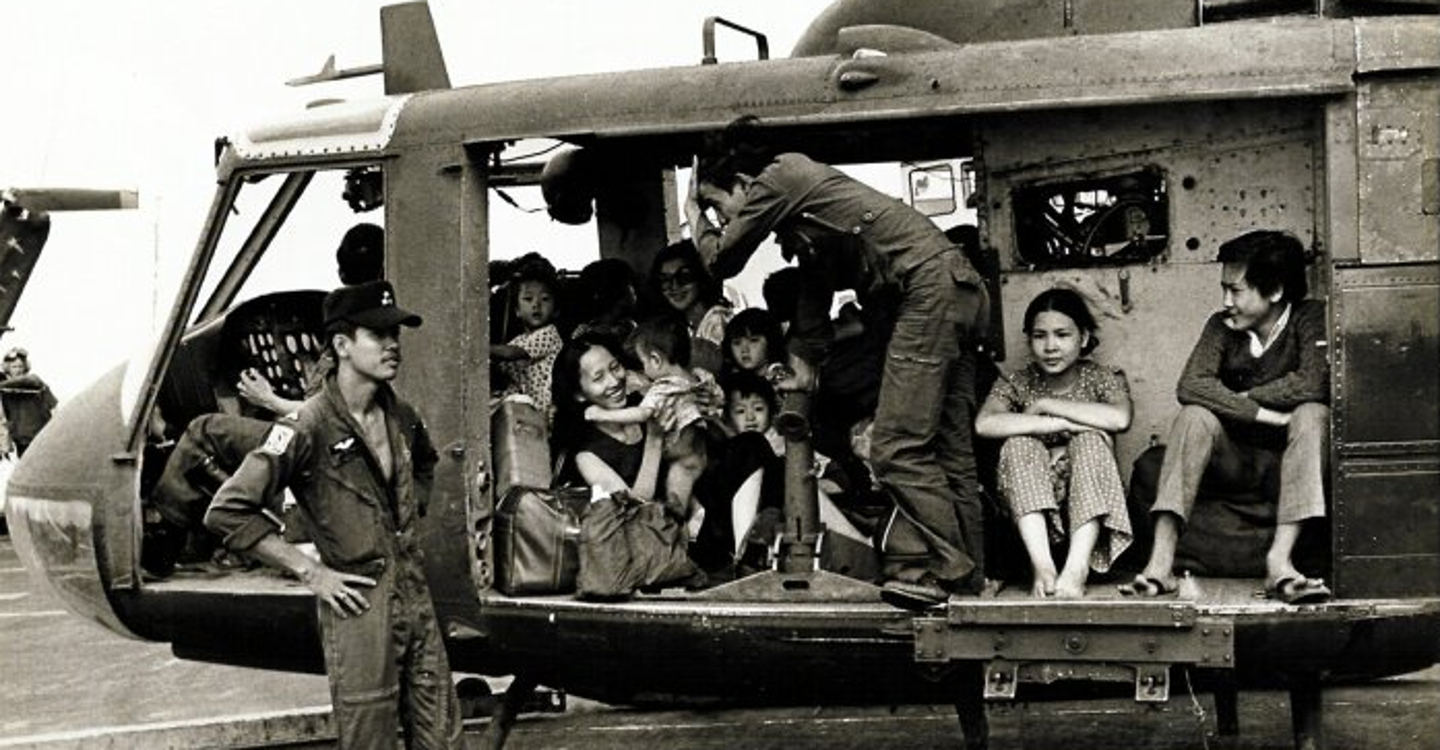
What are the costs for the U.S. of losing the war? And it’s a sort of uncomfortable conversation in some ways because the answer may be not all that much.
A BETTER PEACE returns with our three scholars of the American War in Vietnam and Editor-In-Chief Jacqueline Whitt to examine the Tet Offensive and its significance in the Vietnam War in Episode 2. Bob Brigham, Hang Ngyuen and Greg Daddis continue the discussion about what we know, and more importantly, what we don’t know about the period from 1968-1973 and how it affected U.S. and Vietnamese policy, strategy and tactics.
Podcast: Download
Robert K. Brigham is the Shirley Ecker Boskey Professor of History and International Relations at Vassar College, USA. He is the author of numerous publications on American foreign relations. Gregory Daddis is a retired Colonel in the U.S. Army and a Professor for the History Department in the Chapman University. Lien-Hang T. Nguyen is the Dorothy Borg Associate Professor in the History of the United States and East Asia. She specializes in the Vietnam War, U.S.-Southeast Asian relations, and the global Cold War. Jacqueline E. Whitt is Professor of Strategy at the U.S. Army War College and the Editor-in-Chief of WAR ROOM. The views expressed in this presentation are those of the speakers and do not necessarily reflect those of the U.S. Army War College, U.S. Army, or Department of Defense.
Photo Description: A VNAF UH-1H Huey loaded with Vietnamese evacuees on the deck of the U.S. aircraft carrier USS Midway (CV-41) during Operation Frequent Wind, 29 April 1975
Photo Credit: U.S. Navy Photo





As much as you might feel that the memories of Vietnam veterans might be unreliable, many primary sources will be present in Atlanta this Saturday. The Atlanta Vietnam Veterans Business Association is sponsoring a Vietnam War Symposium. I’m sure you might find it interesting and perhaps challenging, as well.
Regarding the costs of the war: ‘the answer may be not all that much’. I respectfully disagree. Firstly there is the incalculable moral cost of the United States government’s betrayal and abandonment of an ally who wished only to survive and to prosper free of communism. That cost is evidenced in the quarter of a million South Vietnamese refugees who perished at sea in their efforts to escape a supposedly ‘reunified’ and ‘liberated’ Viet Nam. It is seen also in the postwar genocide in Cambodia and the subjugation of Indochina under the hegemony of Hanoi with all of the strategically incalculable ruination and blighting of prosperity and hope which all of that entails. The cost is further evidenced in the dismay of our veterans whose memories are sharper than we might imagine and who, to this day, are trying to come to terms with the consequences of their being asked to fight a war which their government and a so called ‘antiwar’ movement ensured they could not win. Ultimately, the cost is paid in United States blood and treasure exacted in recent times by implacably insurgent enemies of democracy in general. In a postmodernist era of asymmetric warfare, the cost to the US of losing the Viet Nam War is witnessed in the setting of a historical precedent: that when America’s enemies persist in their aggression long enough, if they kill and maim as many of America’s and her allies’ soldiers as possible for as long as possible, then in the long run they will win. Even if this assumption and the associated hubris is ill-founded, the costs of militarily disproving it have been correspondingly increased with all of the attendant grief and loss which that necessitates! Finally, the cost is witnessed in the dominance in academia and the media of those who approve the ending of the war on North Vietnam’s terms with a consequent warping of the national perspective which subsequent generations of Americans have been persistently indoctrinated to accept. Perhaps, therefore, we should not dismiss the ‘costs’ of the war solely in strategic terms, though I believe those terms alone would be more than enough. Three days ago, in Westminster California, I stood at the last resting place of 81 South Vietnamese soldiers who perished in the line of duty in 1965 and whose remains were stored in a disgraceful and contemptuous limbo since 1974. Soldiers without a country or even a grave, they have come home to America. To see the face and hold the hand of a South Vietnamese widow (now an American citizen) whose soldier husband had returned to her with dignity and honour after fifty-four long years is to render the costs of losing the Viet Nam War self-evident, particularly when one ponders all that might have been, both morally AND strategically, if the country which that young man died for had been permitted to survive.
As a veteran, and with the unusual combination of studying the situation in Viet Nam from high school years (class of ’60)as well as while in college, and then ending up as a Marine Combat Photographer in 1968, and now an amateur historian with hundreds of contacts with veterans,scholars, Vietnamese veterans, and being active in charity work in Viet Nam, I can agree that anecdotal memories do tend to change over time, some get fainter, some change a bit. Hey, that’s even true of our college memories! But many very important things do not change, they are burned in. Our understanding of things we saw, did, heard about, read about, often changes over time (again, true of college experiences). Studying history depends principally on what solid facts can be recovered, and what can be learned from examination of those facts. Listening to individual veterans can be very useful, especially for those who were personally involved in various events. My own understanding of the history has grown greatly both from the good literature available, and the testimony of individual Americans and Vietnamese I have been fortunate to know. Learning never really stops when it comes to complex events, and wars of any size and duration are as complex as things ever get.
Clearly, I love to do both contemporary and verifiable fiction. At the point when a smidgen of a story snatches me, I attempt to go with it to see where it will take me whatever the setting.